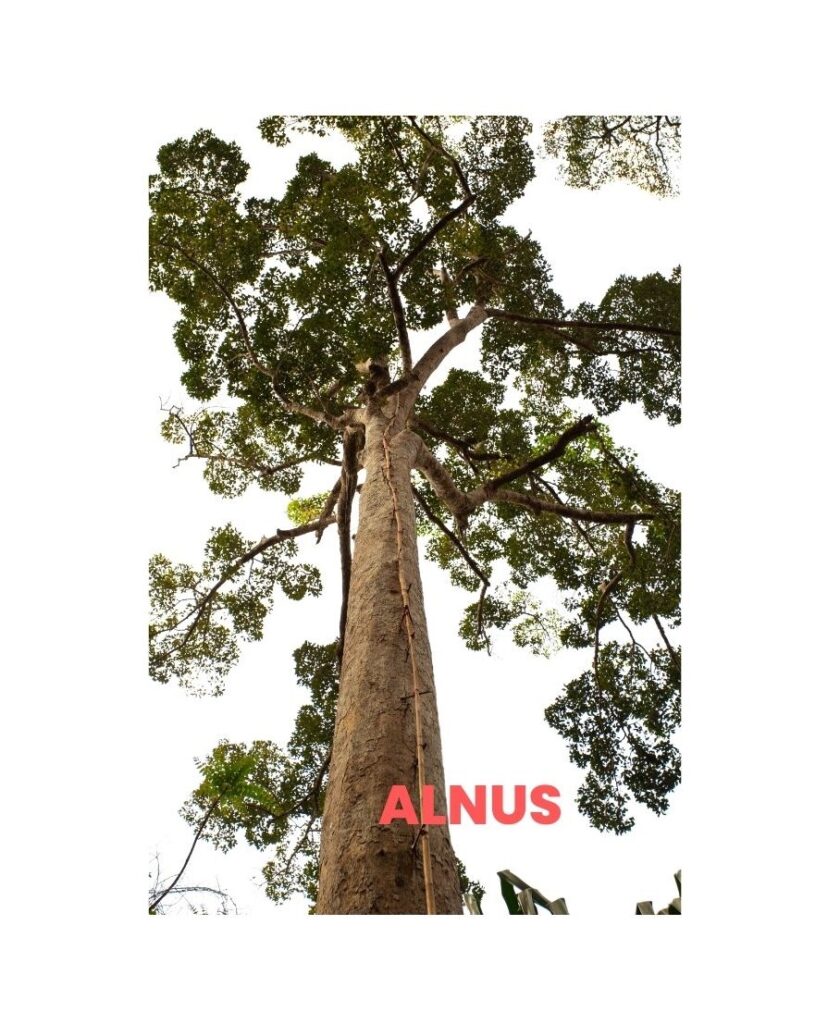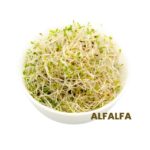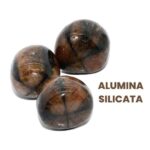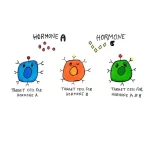Alnus, commonly known as Red Alder, is a homeopathic remedy with a reputation for addressing skin affections and glandular issues. The remedy is prepared using the bark of the Red Alder tree. The potentization process involves dilution and succussion, enhancing its therapeutic properties.

Table of Contents
ToggleSOURCE INFORMATION
- Kingdom: Plantae (Plant Kingdom)
- Clade: Tracheophytes (Vascular Plants)
- Class: Angiosperms (Flowering Plants)
- Order: Fagales (An order of flowering plants)
- Family: Betulaceae (Birch family)
- Genus: Alnus
Red Alder, classified under the genus Alnus, is a deciduous tree belonging to the birch family (Betulaceae).
As an angiosperm, it is a flowering plant with seeds enclosed within an ovary.
Red Alder is known for its ecological significance, especially in forest ecosystems, where it plays a role in nitrogen fixation and supports diverse plant and animal species.
The tree typically has serrated leaves and catkins, with male and female flowers on the same tree.
Red Alder is valued for its timber and has various applications, including in woodworking and ecological restoration projects.
Understanding its botanical classification provides insights into its evolutionary relationships with other plant species.
DRUG PATHOPHYSIOLOGY
Alnus is believed to stimulate nutrition, providing a positive influence on glandular activity. Its action on mucous membranes contributes to its effectiveness in addressing skin and gastric issues.
CHIEF GUIDING SYMPTOMS
- Skin Affections: Alnus is indicated for various skin conditions. Fingers may be covered by crusts resulting from pustules, often associated with an unpleasant odour.
- Glandular Affections: The remedy is known for its positive influence on enlarged glands, including sub-maxillary glands.
- Gastric Issues: Alnus stimulates nutrition and acts favourably on mucous membranes of the mouth and throat. It is useful for indigestion caused by an imperfect secretion of gastric juice.
- Female Issues: Alnus may be considered for leucorrhoea, especially when associated with erosions of the cervix that bleed easily. It is also indicated for amenorrhea with burning pains extending from the back to the pubis.
- Skin Conditions: Chronic herpes, eczema, prurigo, and purpura hæmorrhagica are among the skin conditions for which Alnus is considered.
DOSE OF ALNUS
Alnus is typically administered in the form of a tincture up to the third potency.
FREQUENTLY ASKED QUESTIONS
- Is Alnus effective for skin conditions?
- Yes, Alnus is known for its efficacy in addressing various skin conditions, including chronic herpes, eczema, prurigo, and purpura hæmorrhagica.
- How does Alnus influence glandular health?
- Alnus stimulates nutrition and acts favorably on enlarged glands, particularly sub-maxillary glands.
- What gastric issues can Alnus address?
- Alnus is beneficial for indigestion resulting from an imperfect secretion of gastric juice.
- Is Alnus suitable for female issues?
- Yes, Alnus may be considered for conditions such as leucorrhoea with cervical erosions that bleed easily and amenorrhea with burning pains.
- Can Alnus be used externally for skin conditions?
- Yes, Alnus can be used locally for conditions like poison oak and skin affections. It is recommended to use it under the guidance of a qualified homeopathic practitioner.
Note: The information provided here is for educational purposes and should not replace professional medical advice. Always consult with a qualified healthcare practitioner for personalized guidance and treatment.
Lorem ipsum dolor sit amet, consectetur adipiscing elit. Ut elit tellus, luctus nec ullamcorper mattis, pulvinar dapibus leo.













Leave a Reply